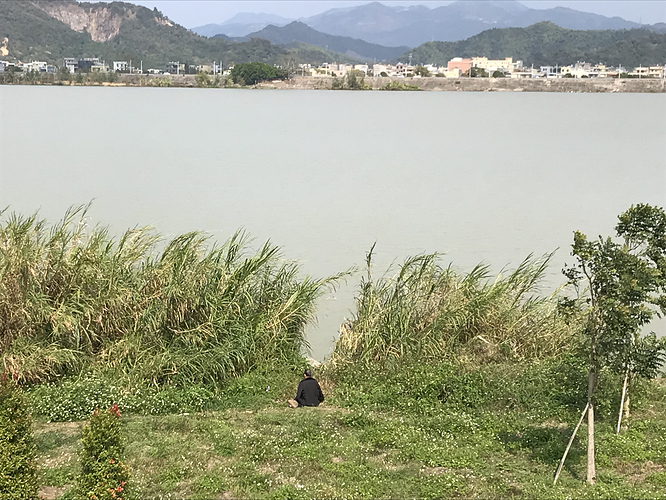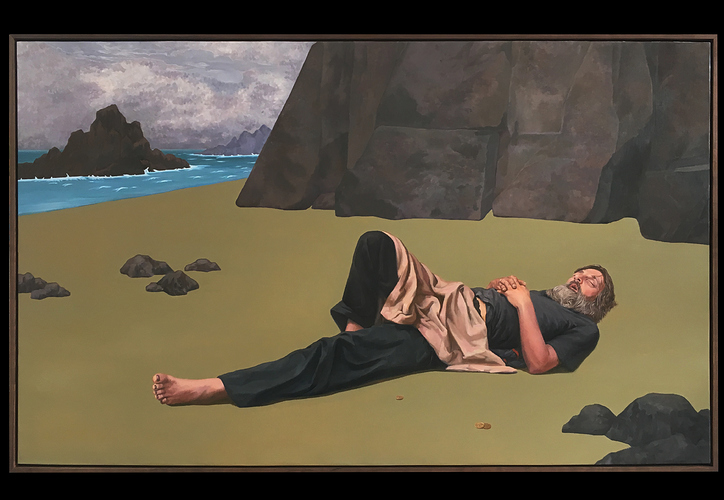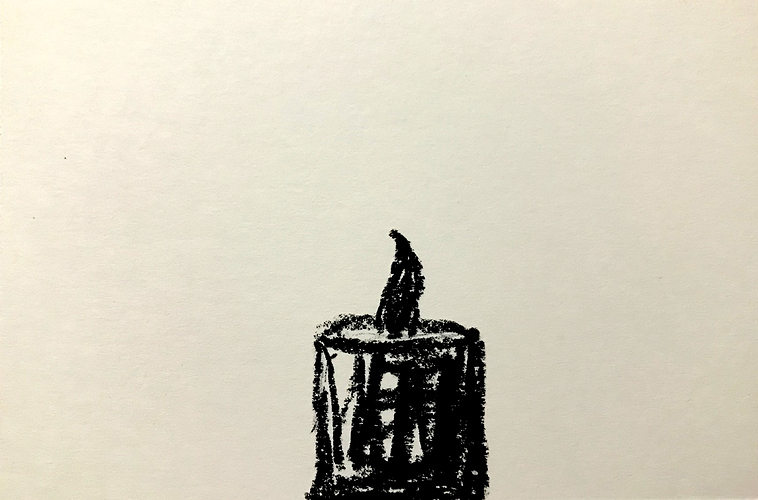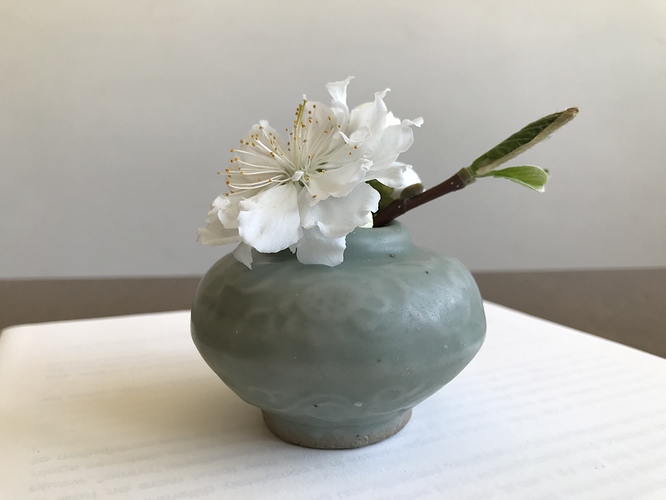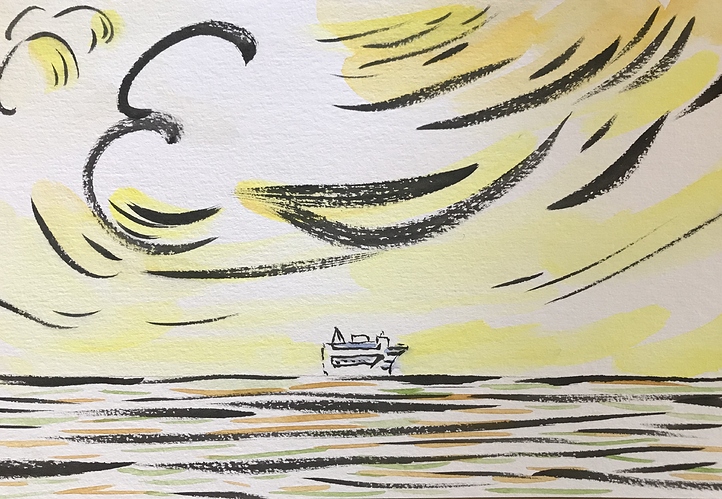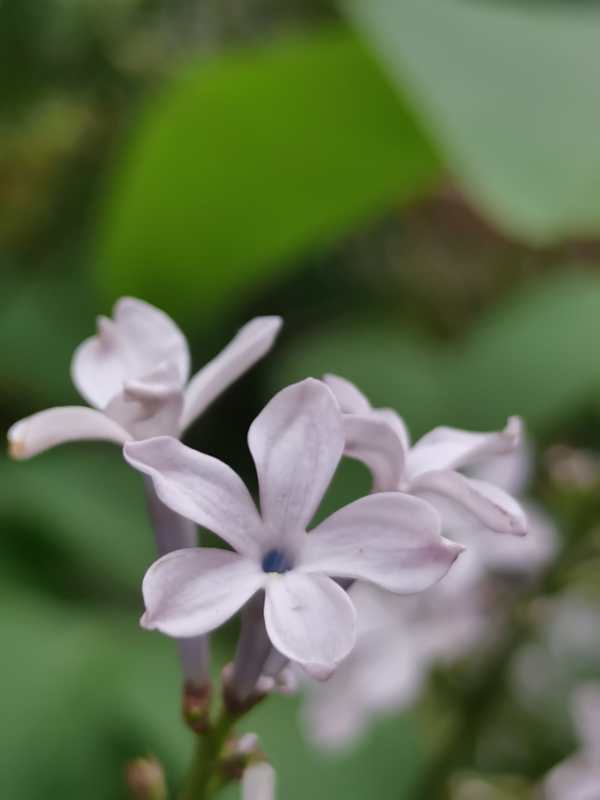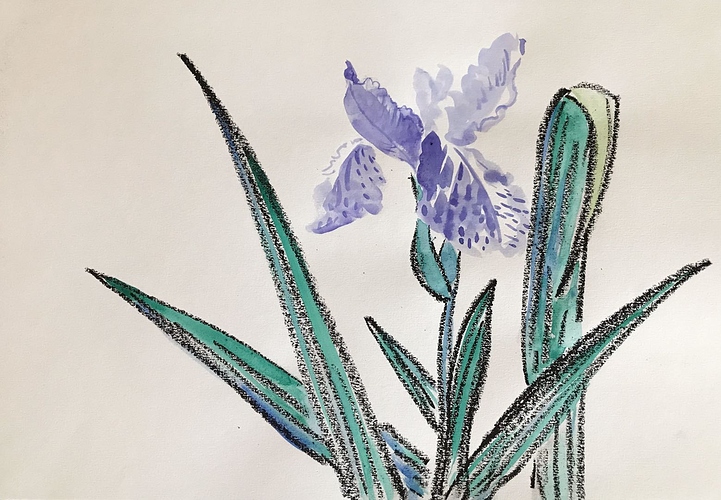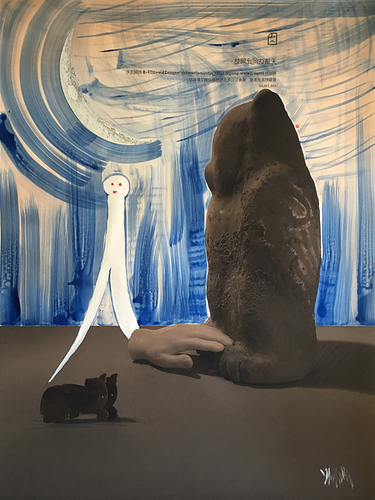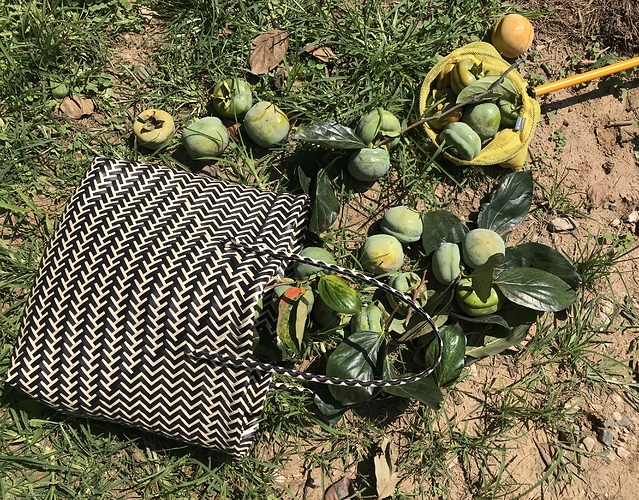This image was taken when we were visiting Chaozhou, a coastal city in South China on January 23, the day when Wuhan went into lockdown. A man was mediating in solitude facing the Hanjiang River. Since then, nearly everyone in China has been forced into a kind of self-isolating.
When receiving the invitation to join this conversation, we immediately decided to participate as a family of three. It feels the right thing to do since the epidemic has brought our whole family’s life into a new “together” mode. Every day we have been in constant conversation with each other about how the situation evolves and how it affects each of us so much that it will leave a profound mark on all of our lives, thinking and future. We have personally learned a great deal from the words and thoughts of two Wuhan-based writers who have kept and published a daily account of their lives and experiences throughout the lockdown of Wuhan. We believe that writing and sharing of our experience can both help ourselves develop a better understanding of our experience and perhaps can connect many of us who are both frightened by the situation and determined to understand it. As a dear friend has written to us, “any small but heartfelt and personally urgent step matters, especially if it thinks about what is right for the world without the person being self-righteous.” We begin our first entry by answering the questions posted to us in the invitation.
Q: Please describe the situation in general where you are and your circumstances. What differences has Covid-19 made to your life already?
A: It has been exactly 60 days since we returned to Beijing from a short trip to South China on January 31. Initially, we were required by the local authority in our community to be self-isolating at home for 14 days but we have extended it ourselves until now, for fear of catching the virus. All the most tragic and heart-breaking news and stories about and from Wuhan and Hubei Province, the most affected area, have taught us to be extremely cautious and not to underestimate the situation. Constantly reading everything about it for the past two months have taught us one thing, which is that we are really on our own in this. We must do everything to protect ourselves and our loved ones from catching it because it literally has no cure. Past experiences do not apply and the only thing one can do above all is to stay at home and to feel grateful for such a privilege because it could be a thousand times worse. When we get sick of being at home, we think about those infected patients standing for hours waiting to be tested and dropping dead while still waiting to be seen by a doctor in Wuhan barely one month ago, we think about the daily cries appearing online to plead for a hospital bed for their sick family member, we think about all the couriers who are constantly exposed to the danger of infection because they can’t afford to stay home, we think about a friend who went to visit his mother-in-law in Wuhan from another city. He and his wife were preparing to stay for one week but they ended up staying in a hotel room for over 60 days since Wuhan’s lockdown on January 23. They were not allowed to get out of the door of their 15 square meter hotel room all this time and had every meal delivered to their door. Patience is something that we have all learned from the Covid-19 outbreak because just as we thought that everything was looking bright early last week, when new local transmissions in Wuhan fell to zero, things became stiff again. As the time of writing this entry, the number of new local transmissions is zero in China, but imported cases are increasing every day and Beijing has a record number. In particular, asymptomatic patients are highly infectious and the potential risks are very high still. So we continue to stay at home, studying and working.
It has been almost 90 days since the Covid-19 epidemic broke out. In this epidemic, we are not in the most dangerous Wuhan. The fear and despair we have experienced have been translated through the media, so to a certain extent, we have developed a relationship of empathy with the events during this epidemic.
All of our lives have been affected profoundly by this experiece so far. Practically speaking, we have to wear a mask wherever we go. We have seen new-born babies wearing masks while sun-bathing in the garden. It’s not funny but heart-breaking. Although there are efforts to normalize things in the society and the government is trying to convince the public that it is safe to resume work and life, there is no school for any school-aged kids yet. From the most recent notice we have received from school, the current schedule for online teaching is planned until May 9, which means that schools in Beijing could not resume before that. All of this means that this is a long-termed condition. It’s still too early to assess how this experience affects us emotionally but hopefully with this diary entry, we can try to resolve some of our emotions.
Q: How does it pan out in relation to your professional life, if it even exists at this point?
A: We all have shows closed, and works in a show that can not be viewed, exhibition projects postponed, trips cancelled, teaching jobs suspended but a professional life is a life-long undertaking so these temporary inconveniences are just temporary. At this point, there is nothing more important than the physical and psychological wellbeing of ourselves, our loved ones, our friends and our colleagues. This experience, however, will have a very deep mark in our professional life definitely, not in forms of lost opportunities but in ways that we view the profession of art, which we will elaborate in the following entries.
Q: What is the current impact, in your view, on anything to do with art, both in terms of infrastructure and maybe even conceptually and aesthetically?
A: It’s too early to assess the long-termed impact of Covid-19 on the infrastructure of art, at least in China now. We have seen many remarkable colleagues, both out of necessity for survival and out of courage, to keep their activities going as much as possible. Most venues for art in Beijing are not open to the public but some museums and institutions have opened their doors to the public in Shanghai. It’s a very difficult decision to make. We are observing how the institutions that have opened will go so that we can explore our next steps. A sense of community must be enhanced among all of us working in the art field so that we can support each other and learn from each other. We have seen this works remarkably among the three of us at home in the past 60 days of being together. When one of us feels lazy, we look to the others for morale and roles to follow. It’s important to work as a community. When one takes a step forward, the others can all learn from his/her experience, success or failure.
Q: What short- and long-term effects do you foresee on art, its production and circulation, keeping in mind that right now this may be very secondary?
A: One should never underestimate human imagination and visions. There is a lot to learn from dealing with Covid-19 in terms of understanding of human existence, social organizing, and self-governance. Despite all the Covid-19-triggerred suspensions, delays and cancellations, when the art world is re-activated, we will see new models, innovative forms of practice and visionary initiatives because having fought a hard battle and having learned the most difficult lesson, we will hopefully have more respect towards life and thus feel more compelled and urgent to make where we work a more respectful place other than the usual shallow, narrow-minded, utilitarian, short-sighted and greedy field.
Q: For those of you who have already gone through the phase of worst impact, are there any recommendations for those of us who are lagging?
A: The practice in China is to stay at home as much as possible and stay healthy mentally. We wear masks in public places, use public transportation as little as possible, and stay away from crowds and above all stay patient.
One should never underestimate the power of the Nature and overestimate the power of man. It’s important to feel humble and to acknowledge danger and the limits of our knowledge and ability in the face of unknown circumstances. We have seen too many lives lost to ignorance and arrogance in the past few months. It’s also important to be patient with everything, with oneself, with one’s emotion, with one’s loved ones and with the unknown. The epidemic has brought our whole family’s life into a new “together” mode. We have learned to cherish this precious time every single day.
Stay safe and patient
Liu Ding, Liu Qingshuo and Carol Yinghua Lu
Beijing
March 30, 2020
